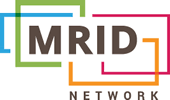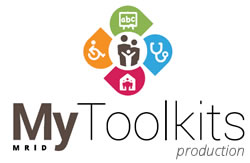
Research that builds co-design into its philosophy and processes involves consumers and health practitioners working collaboratively and in partnership throughout all aspects of the research process. This means more than having consumers as participants. This means that consumers and health professionals work side-by-side to decide what issues or subjects should be prioritised for a research project, they develop and plan it, they oversee its implementation, they review its findings and determine – together – what action need be taken as a result.
Co-design research needs to be driven by consumers – to address the questions which are important to consumers, to be carried out in ways which work best for them and ultimately improve their overall quality of life.
This inclusive approach is particularly necessary because medical and health research typically involves consumers as its subjects. Involving consumers and consumer representatives as equal partners in the development and implementation of a research project eliminates many barriers to participation. It also ensures that the research is relevant, of practical value and stands a significantly greater chance of achieving its desired aims – obtaining high quality data from which reliable conclusions can be drawn.
Here we outline the key things to consider in conducting co-design research.
Research Development
Consumers and health professionals work together to develop and establish appropriate aims, content and management structures for their research project. This may involve forming a working party or steering committee. A specialist researcher (for example, from a university research unit) may be involved, depending on the scale and character of the project.
Question Development
- Research questions are driven by the issues that are important to consumers (as established through feedback tools such as focus groups or questionnaires).
- Consumers and health professionals work together to establish the research project’s overarching aims and draft the specific questions that will be asked of subjects.
Methodology Development
- Consumers and health professionals work together to develop the research methodology regarding the ways in which the research will be conducted and information be collected.
- Care should be taken to ensure that the methods chosen are user-friendly, acceptable to consumers, as non-invasive as possible, and minimally inconvenient to research subjects.
Ethics Approval
- Consumers and health professionals review the ethical components of the research study to consider potential benefits, risks, potential for coercion etc.
- Consumers and health professionals work together to write participant information sheets and consent forms in clear language that is understandable to all involved.
Oversight
- Consumers and health professionals work together to monitor plans for implementation of the research and revise protocols as necessary (e.g. via working parties or committees).
- Consumers and health professionals together monitor the roll-out and implementation of the research ensuring compliance with ethical approvals.
Research Implementation
- Consumers and health professionals work together to roll-out the implementation of the research, ensuring data is accurately collected, recorded, interpreted and reported.
Recruitment
- Consumers and health professionals work together to draft recruitment materials, ensuring appropriate and accessible language throughout.
- Consumers, health professionals and researchers work together to recruit participants and explain the study to them.
Data Collection
- Consumers and health professionals work together to facilitate the data collection process. Depending on the type of research this may occur in different ways.
- It is important to ensure that data collection is conducted by people with appropriate skills and training in that area (e.g. the skills needed to facilitate a focus group are different from those needed to help someone complete a survey).
- Medical tests and examinations, and cognitive, IQ and psychological tests should always be carried out by people with the appropriate qualifications.
Data Analysis
- Consumers and health professionals together review, analyse and interpret the data collected.
Reporting and Write Up
- Consumers and health professionals work together on writing up and reporting on the research findings and conclusions, ensuring language is appropriate and accessible to all.
- Both consumers and health professionals are appropriately acknowledged as co-authors on reports and papers for publication.
- Consumers and health professionals co-present research findings and conclusions so as to report back to participants and other interested parties (e.g. at seminars and conferences).
Supporting Consumers as Active Partners
It is critical that everyone involved in managing a research project understands and accepts that all research must be carried out in an ethical manner. This means:
- Ensuring that everyone involved has the training and qualifications required to carry out their role. This includes training on the ethics of conducting research.
- Privacy and confidentiality must be maintained. Only those who are formally part of the research team may have access to research data and must comply with ethics requirements.
It is the responsibility of the health service to provide all support necessary to equip consumers to truly participate as active equal partners in the research team.
This may mean:
- Providing training on the different aspects of research development and implementation (e.g. data collection protocols, data analysis techniques and ethics of research);
- Employing a liaison staff member who can answer questions and provide support;
- Offering payment (or other forms of compensation) to consumers for their time and contribution on committees/meetings and other aspects of research work.
Example:
The research conducted to develop and test the Mental Health Consumer Perception and Experiences of Services (MH-CoPES) Framework was based on a consumer participation or Co-Design model of research. Consumers were central in the process:
- They drove the concept of the research, arguing the need for a framework for consumer participation in service evaluation and development.
- The MH-CoPES Questionnaires were developed with consumers to ensure they directly addressed their issues of concern using plain, understandable language.
- Consumers, clinicians and service executive were involved in the development of draft protocols for the whole MH-CoPES Framework.
- The methodology for testing the Questionnaires and Framework were developed by a committee of consumers, researchers, clinicians, service executive and NSW Health.
- This steering committee also oversaw implementation of the research.
- Consumers were trained in the ethics of conducting research and the specific protocols for the study. They were then engaged as research assistants to:
- Promote the study, recruit participants and explain the study to them
- Collect data – distribute questionnaires and assist consumers to complete the questionnaires where needed
- Analyse the data along with the research team
- Design and write the reports on the outcomes of the research
- Co-present at conferences
- Further information about the Mental Health Consumer Perception and Experiences of Services framework is available here.




